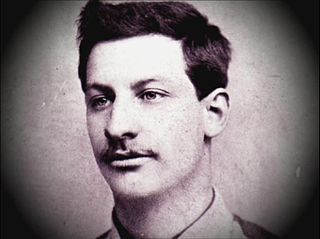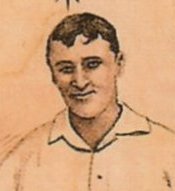Related Research Articles

William Isiah Bassett was an English association footballer, director, and club chairman who served West Bromwich Albion for over half a century.

David Craig Mackay was a Scottish football player and manager. Mackay was best known for a highly successful playing career with Heart of Midlothian, the Double-winning Tottenham Hotspur side of 1961, and winning the league with Derby County as a manager. He also represented Scotland 22 times, and was selected for their 1958 FIFA World Cup squad. Mackay tied with Tony Book of Manchester City for the Football Writers' Association's Footballer of the Year award in 1969 and was later listed by the Football League in their "100 Legends", as well as being an inaugural inductee to both the English and Scottish Football Halls of Fame. He was described, by Tottenham Hotspur, as one of their greatest players and was known as 'the heartbeat' of their most successful ever team.

The Manchester derby refers to football matches between Manchester City and Manchester United, first contested in 1881. City play at the City of Manchester Stadium in Bradford, east Manchester, while United play at Old Trafford in the borough of Trafford, Greater Manchester; the two grounds are separated by approximately 4 miles (6.4 km). The teams have played 190 matches in all competitions, United winning 78, City 59, and the remaining 53 having been drawn. Amongst the most successful clubs in England, they have won a combined 99 honours: 67 for Manchester United and 32 for Manchester City.

James Daniel Ross was a Scottish footballer who played as an inside forward.
Archibald Lee Goodall was an Irish footballer who made 429 appearances in the Football League for Preston North End, Aston Villa, Derby County, Glossop and Wolverhampton Wanderers. He won 10 caps at full international level for Ireland. Goodall could play in the centre half and forward positions.
David Weir was an English footballer who played for several clubs in the 19th century, including Bolton Wanderers and Ardwick, and won two caps for England.

David Kennedy Russell was a Scottish footballer.
The 1888–89 English football season saw the first season of the Football League. In the late 1880s, Birmingham and the surrounding region boasted many of the country's strongest football teams. Villa and several of the region's leading clubs joined the first two national leagues set up in England, the Football League and the Football Alliance.
Hugh Morris was a Welsh footballer who played as a forward for Manchester City, Sheffield United and Grimsby Town in the 19th century. Born in Chirk, Wales, he gained three caps for the Welsh national team.
Adam Fraser was a Scottish professional footballer who made 19 appearances in the First Division of the Football League for Small Heath. He played as a left half.
Alexander Wallace (1872–1950) was an English professional footballer who played in the Football League for Ardwick and Small Heath. He played as an outside left.
Walter Cox, also credited as William Cox, was a Scottish professional association footballer who played as a goalkeeper. He played a total of 30 matches in the Football League for Burnley and Everton.
Thomas William Egan (1872–1946) was a Welsh professional association footballer who played as an inside forward. Egan played in the Football League for Ardwick, Burnley, Sheffield United and Lincoln City. He was awarded one cap for the Wales national football team for the match against Scotland on 26 March 1892.
Robert Samuel Jones (1868–1939) was a Welsh footballer who played as a full back. He gained one international cap for Wales in 1894.
Thomas McLean was a Scottish footballer who played in the English Football League for Derby County and Notts County.
Haydn Arthur Morley was an English footballer who played in The Football League for Derby County and Notts County. Morley also played cricket for Derbyshire in the summer months.
Robert Brand was a Scottish footballer who played in the English Football League for Accrington and Derby County. He was born in Cambusnethan, a village on the edge of Wishaw in Scotland. Bob Brand first came to prominence, as a footballer, in 1886 when he signed for Queen of the South Wanderers. According to the Wikipedia article the season Brand joined and played for Queen of the South Wanderers was when they had a substantial Scottish Cup run and were investigated and suspended for having professional footballers. According to one source Bob Brand spent the 1887-88 season as a wanderer playing for Rangers, Hearts and back to Queen of the South Wanderers.
Lewis Cooper was an English footballer who played in The Football League for Derby County.
Arthur Latham was an English footballer who played for Derby County.
Lawrence Plackett, known as Lol Plackett, was an English footballer who played for Derby County and Nottingham Forest. His brother Harry was also a footballer. Lol Plackett' first club was Long Eaton Alexandra but there appear to be no records about this club. One source states Plackett signed in 1885 and another states he joined Derby County sometime in 1886.
References
- ↑ Joyce, Michael (2004). Football League Players' Records 1888 to 1939. SoccerData. p. 88. ISBN 1-899468-67-6.
- ↑ Metcalf, Mark (2013). The Origins of the Football League. Amberley. p. 195. ISBN 978-1-4456-1881-4.
- ↑ "English National Football Archive" . Retrieved 12 January 2018. (registration & fee required)
- ↑ Mortimer, Gerald (2004). Who's Who of Derby County. Breedon Books. p. 67. ISBN 1-85983-409-4.